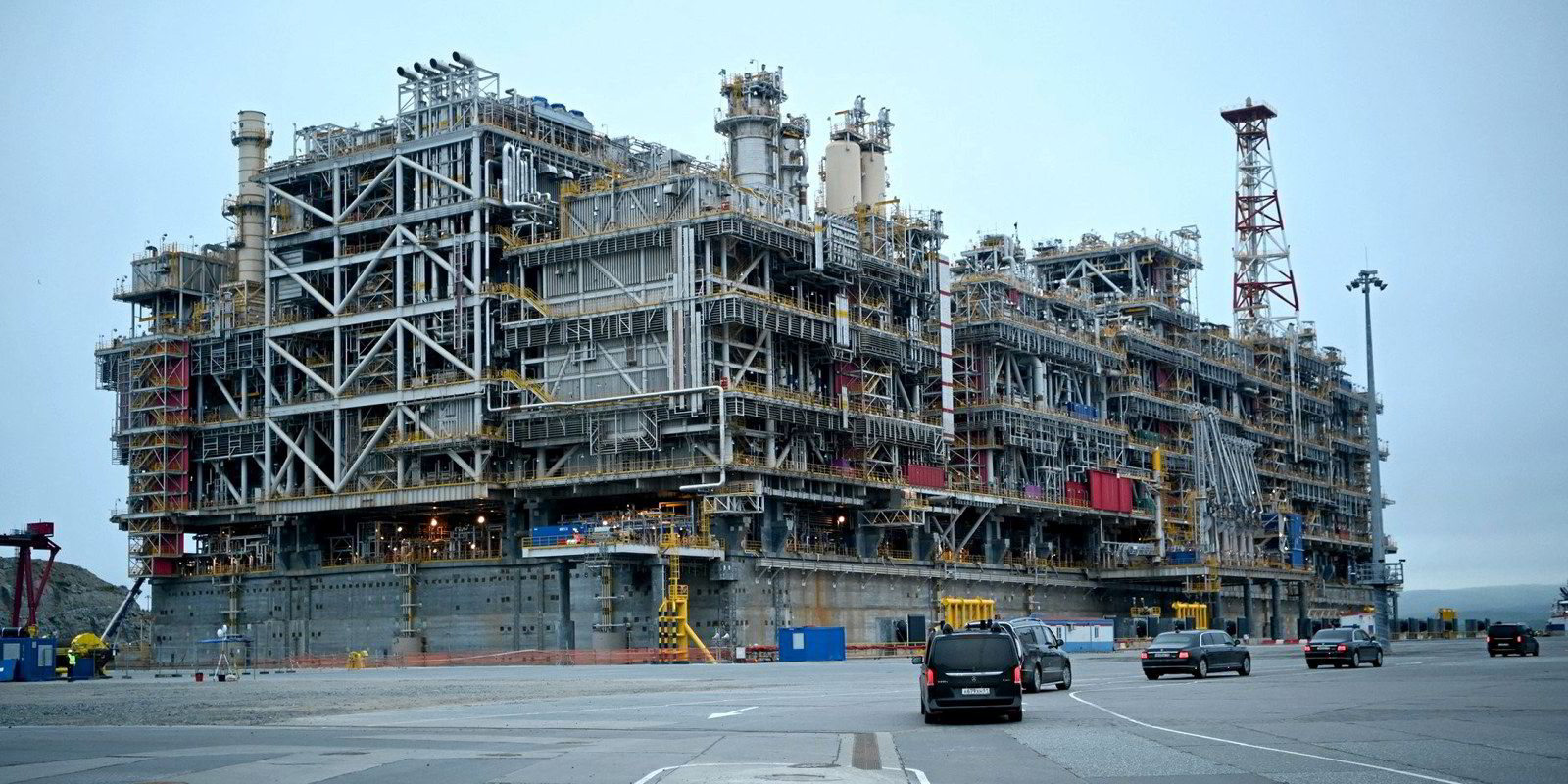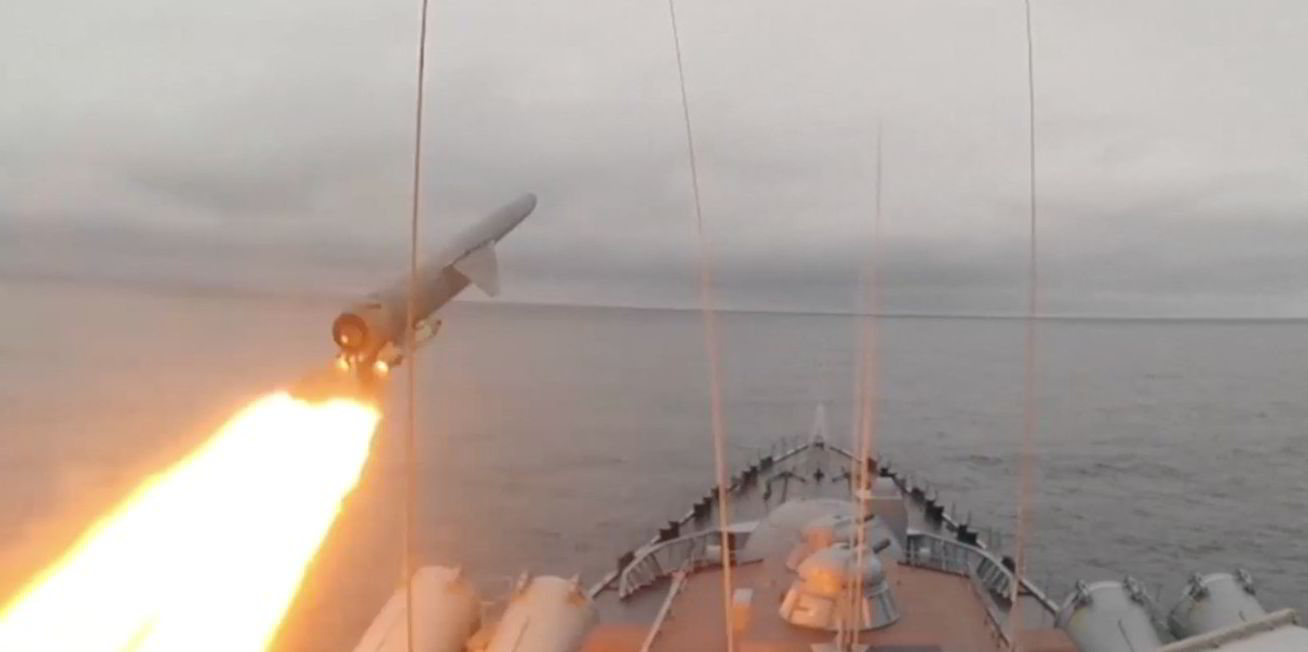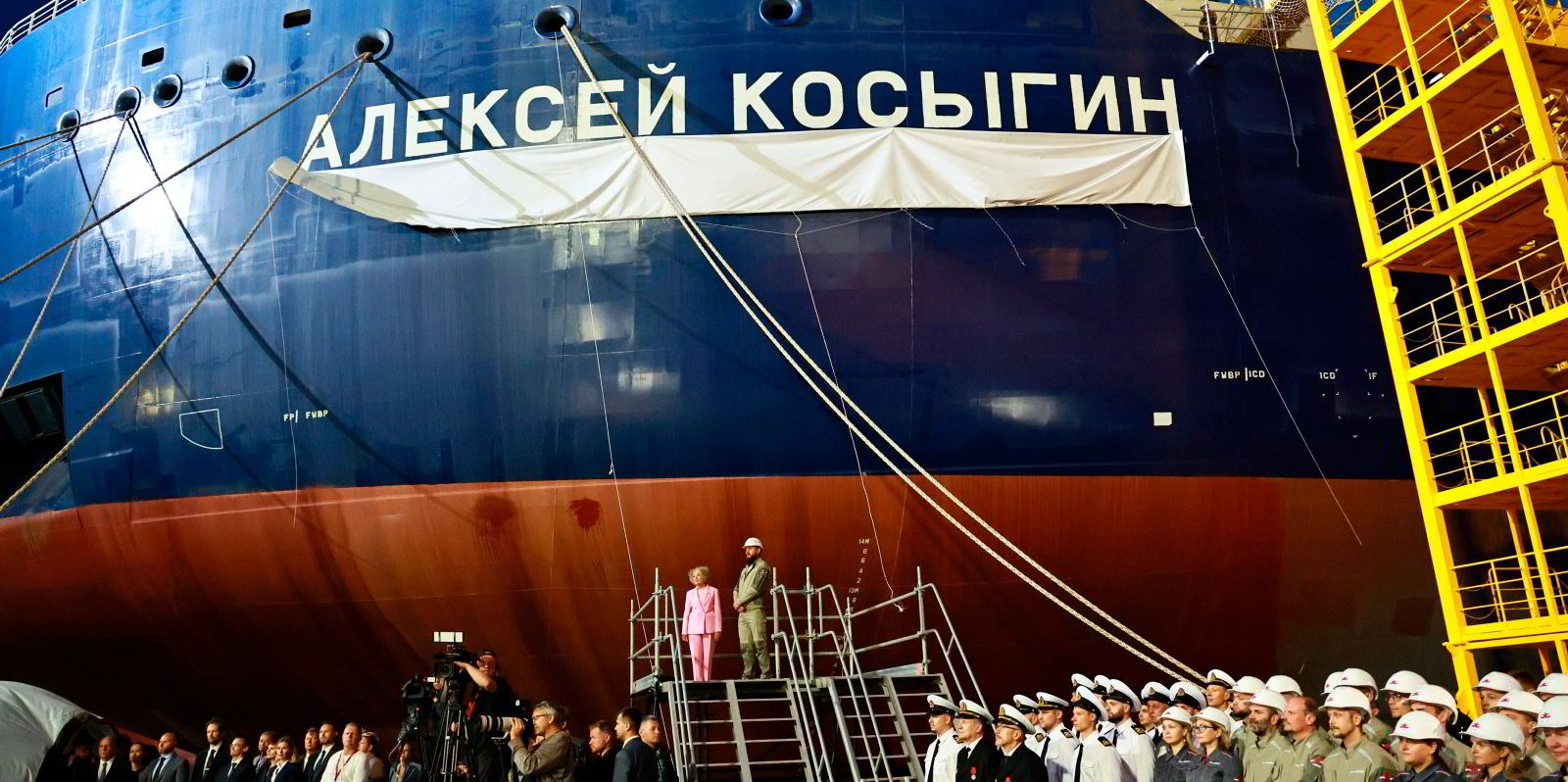Russia is closing in on the start-up of Arctic LNG 2 — its next planned liquefaction project — as the US and UK ramp up sanctions against vessels, companies and individuals linked with the business.
The US updated its sanctions list on 14 September, adding two giant floating storage units (FSUs) that were installed at either end of the Northern Sea Route (NSR) this year.
The 361,600-cbm Saam FSU and Koryak FSU, which were put into place in Ura Bay off Murmansk and in Bechevinskaya Bay on the eastern side of Russia’s Kamchatka Peninsula, respectively, are now named on the Office of Foreign Assets Control’s list, along with other associated entities.
Those following Russian LNG business said their sanctioned status may mean some third-party LNG carriers will now be unable to load at the new storage units.
The FSU behemoths, which have yet to be used, have been put in place to take on LNG cargoes shipped into them by Russia’s specialised Arc7 LNG carrier fleet with lesser ice-classed vessels then able to load at the FSUs, freeing up the ice-breaking Arc7 fleet to work in the harsher, sometimes ice-bound waters.
The additions to the US sanctions list also included names of companies working on business in the Russian Arctic, where domestic energy company Novatek is pushing to complete and start operations by the end of the year on the first of its three liquefaction trains for the 19.8-million-tonnes-per-annum Arctic LNG 2.
On Friday, the UK added Novatek chairman of the management board Leonid Mikhelson to its list of sanctioned individuals. But Mikhelson is not yet sanctioned by the European Union, which is continuing to import LNG cargoes from Russia’s Yamal LNG project.
The tougher sanctions come as South Korean shipbuilder Hanwha Ocean started trials of its soon-to-be-completed three Arc7 LNG carrier newbuildings, which were originally ordered Russian shipowner Sovcomflot and later by the yard.
Ship tracking data has shown the 172,600-cbm Pyotr Kapitsa and sistership Lev Landau off the Okpo shipyard, with a third vessel — the Zhores Alferov — yet to undergo trials.
Hanwha Ocean — then named Daewoo Shipbuilding & Marine Engineering — opted to continue building all three Arc7 vessels after the yard moved to cancel its contracts for them in 2022 as sanctions prevented foreign contractors from supplying equipment for and completing work on the units.
Sovcomflot has since launched arbitration over the newbuilding trio and is claiming damages of more than $877m over the cancelled contracts.
The ships are due for delivery at the end of this year. There is widespread speculation throughout the LNG industry that the vessels will be sold on to a company with links to Novatek.
The Russian gas giant originally contracted 21 Arc7 vessels to serve the Arctic LNG 2 project. But plans for these have been thrown into some disarray.
Novatek is still set to receive three of the ships, which are being built by Mitsui OSK Lines at Hanwha Ocean against long-term contracts with the Russian energy company’s interests.
Aside from these six Hanwha Arc7 newbuildings, the first of 15 Arc7 LNG carriers contracted at Russia’s Zvezda Shipbuilding Complex was named this month in the presence of Russian President Vladimir Putin.
Sovcomflot’s 172,600-cbm Alexey Kosygin was originally due to sail through the NSR earlier this year to mark the start of the now-delayed Arctic LNG 2 project.
The remaining 14 vessels were ordered by Novatek-Sovcomflot joint venture Smart LNG.
All 15 vessels were covered by an agreement with South Korean shipbuilder Samsung Heavy Industries, which would build the hulls and float them over to Zvezda for outfitting.
But, to date, just five hulls have been delivered, with the agreement on the remaining 10 now looking set to end.
Earlier in 2023, Russian state nuclear agency Rosatom, which controls Zvezda, said it plans to develop its own design of ice-class LNG carriers — 170,000-cbm Arc8 vessels — that would be capable of operating year-round in the ice-challenged waters of the NSR.
(This article has been updated since it was first published to reflect the fact that it was DSME that cancelled Sovcomflot’s LNG carrier newbuildings in 2022 and the arbitration that has since been entered into.)







